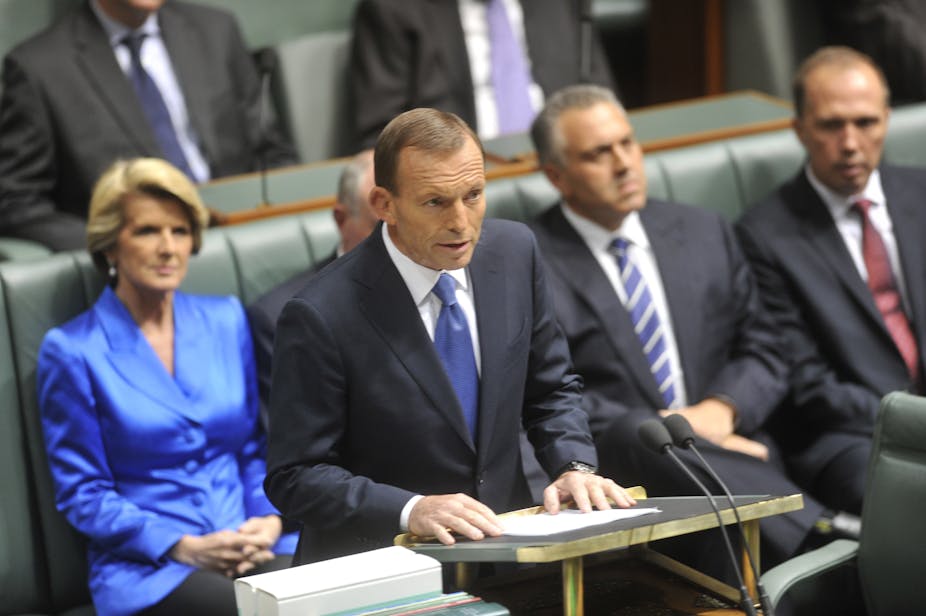Tony Abbott has promised a Coalition government would keep the income tax and pension compensation Labor has given even after it scraps the carbon tax.
The pledge, made in his budget reply, is a major backflip from the line the opposition has consistently taken. It has previously said the compensation would not be needed when the tax was repealed, although it had promised that there would be some alternative tax and welfare help.
The new promise would cost about A$4 billion a year. He outlined savings that will produce nearly $5 billion annually - “more than enough for tax cuts without a carbon tax.”
Among the savings, which include new or old measures, the opposition would delay by two years the ramp up in compulsory superannuation from 9% to 12%. Under a Coalition government this would reach 12% in 2021-22, compared with 2019-20 under Labor. The saving would be $1.1 billion annually by 2016-17.
Abbott told Parliament that keeping the compensation would ease the pressure on Australian families, “The carbon tax will go but no one’s personal tax will go up and no one’s fortnightly pension or benefit will go down.”
A Coalition government would keep the current income tax thresholds, including the increase in the tax-free threshold to $18,200, and current benefit and pension fortnightly rates.
“So with a change of government, your weekly and fortnightly budgets will be under less pressure as electricity prices fall and gas prices fall as the carbon tax no longer cascades through the economy.”
He said this would strengthen the economy, as well as help families.
Abbott has also accepted the government’s savings announced in Tuesday’s budget, which include scrapping the Howard government’s baby bonus, while also declaring many of the measures “objectionable”.
“The Coalition may decide not to oppose any of them; doesn’t commit to reverse any of them; and reserves the right to implement all of them, in government, as short-term emergency measures to deal with the budget crisis Labor has created,” Abbott said.
Declaring there was now a “budget emergency” because of Labor’s poor management over five years, he said; “We reserve the right to implement all of Labor’s cuts, if needed, because it will take time to undo all the damage this government has done.
"By keeping, if needed, all Labor’s budget cuts and by not implementing any of their spending measures unless specified, we will achieve the first duty of every government - namely, to preserve the nation’s finances,” he said.
Abbott pledged to keep the announced budget spending on the national disability insurance scheme, but made it clear that he did not want to implement the spending on the Gonski school funding, to which so far only the NSW government has signed up.
He said a Coalition government would work with the states to deliver better schools but “we won’t back a so-called national education system that some states don’t support.”
In other initiatives, Abbott promised a comprehensive white paper on tax reform and a white paper on reform of the Council of Australian Governments (COAG) and the responsibilities of different governments “to ensure that, as far as possible, the states are sovereign in their own sphere”.
Among the savings to finance keeping the carbon compensation, a Coalition government is including rescinding the increase to the humanitarian migration intake ($500 million a year by 2016-17) and the 12,000 reduction in commonwealth public sector employees, which would eventually save $1.75 billion a year.
Other measures include scrapping the green loans scheme ($350-$450 million a year), not continuing the twice yearly supplementary allowance to people on benefits ($300 million) and not continuing the low income superannuation contribution ($1 billion a year).


